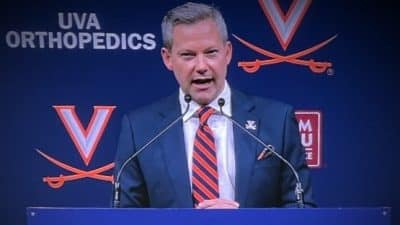Local Climate News

Climate STARR (Strategies for Trauma, Action, Resilience, & Regeneration) training in response to our climate crisis is being held at Eastern Mennonite University, May 14-16, 2025. To learn more and to register, check out the Climate STARR website here.
Federal funds for the Local Food Purchase Assistance program were frozen. The program, coordinated by the Harrisonburg nonprofit Vine & Fig, buys high-quality produce from local farmers and distributes it to schools, food pantries, and health clinics. The funds for the 2025 growing season were later released but will be eliminated in 2026.
The federal funding freeze threatens Shenandoah Valley farms and is disrupting the broader agricultural economy. It has stalled conservation projects and cost-share programs that help farmers implement sustainable practices. For farmers facing frozen contracts, the situation isn’t just a temporary setback—it’s a warning about the long-term viability of farming.
Virginia Energy News
Dominion Energy has completed the construction on a new large scale solar facility in Powhatan County, south of Richmond. The 18 megawatt facility can power up to 4,500 homes at its peak output, and spans across 150 acres.
About 20 bills to deal with data centers were introduced in the Virginia General Assembly this year but only 4 survived. They were meant to address issues including energy and water consumption, land use and location of data centers.
The Virginia General Assembly passed legislation to increase the carve-out for small solar in Dominion Energy’s renewable portfolio requirement from 1% to 5%. The bill expands the amount of clean energy under Virginia law that can go towards increasing solar energy in places such as rooftops of homes and schools, or small property.
Dominion Energy submitted an application with the Virginia State Corporation Commission to install four natural gas-fired turbines at the utility’s Chesterfield Power Station. The turbines can run on natural gas or fuel oil and have the capability to blend hydrogen.
Mecklenburg County in Southside Virginia is drawing up an ordinance to ban utility scale solar installations. These kinds of local policies could drive legislation in the Virginia General Assembly to take that kind of authority away from local governments.
The push to expand electric vehicle charging stations in Virginia has hit a major roadblock in the federal funding freeze. State leaders are pushing back and urging legal action to keep the expansion of new charging stations on track.
Valley Metro in Roanoke recently unveiled its first electric buses, marking a significant step forward in sustainable, clean transportation. The electric buses bring numerous environmental and operational benefits. They offer a quieter ride, lower maintenance costs, and increased fuel efficiency, ensuring a more reliable and cost-effective service for passengers.
Our Climate Crisis
Wildfires are spreading across the eastern U.S. amid an unseasonably dry spring and lots of debris from Hurricane Helene. As climate patterns evolve, wildfires are no longer just a Western problem and they’re no longer just seasonal.
Sea ice cover across Earth’s polar regions hit a record low in February. The Arctic has continued a steady trajectory of less sea ice over time and has warmed at several times the global average. While the Antarctic has not experienced the same warming trajectory, that is now beginning to change.
Rising sea levels are threatening Philadelphia’s drinking water supply. An interstate agency is warning that existing measures to keep saltwater at bay may fail due to rising sea levels and worsening droughts.
Politics and Policy
The Trump administration is working to produce a federal report that portrays climate change as beneficial. Climate scientist Michael Mann calls the effort “ideologically motivated anti-science.” The report will be used to justify rolling back environmental regulations.
America’s six largest banks, Bank of America, Citigroup, Goldman Sachs, JP Morgan, Morgan Stanley, and Wells Fargo, have exited a UN backed climate initiative. They were facing criticism and investigation from right-wing lawmakers and state attorneys general promoting fossil fuels.
Tennessee lawmakers are considering reclassifying natural gas—already defined in state law as “clean energy”—as also “green” and “renewable” to block local attempts to require certain amounts of energy to come from clean or renewable sources. This is dishonest because gas accounts for nearly 40% of total planet-warming emissions from fuel burning in the U.S.
A group of House Republicans is pushing to preserve clean energy tax credits, arguing they are essential for economic growth and U.S. energy dominance. The tax credits have fueled major investments in manufacturing, energy production, and infrastructure in GOP-led districts.
The U.S. Environmental Protection Agency administrator Lee Zeldin announced a sweeping rollback of environmental regulations. It may not survive court challenges, but the attempt alone could create enough disruption to slow climate policy for years.
The United Kingdom is working to form a global clean energy coalition with China, the European Union and developing nations. This will counter President Trump’s rejection of climate policies and his alignment with fossil fuel countries like Russia and Saudi Arabia.
Republican plans to scrap nearly all federal support for electric vehicles could kneecap the industry. Existing trade barriers with China are already keeping cheaper Chinese EVs off American roads and raising the price of going electric. This will delay but not prevent the gradual shift from gas-powered cars and trucks to EVs.
Energy
U.S. Energy Secretary Chris Wright’s claim that wind and solar energy have significantly increased electricity prices is a lie that is not borne out by the data. Modeling and analysis for nonpartisan think tank Energy Innovation has found that clean energy is key to keeping U.S. electric bills in check.
The U.S. installed 50 gigawatts of new solar capacity in 2024, the largest single year of new capacity added to the grid by any energy technology in over two decades. Furthermore, domestic solar module production tripled last year and can now produce enough to meet nearly all demand for solar panels in the U.S.
Atlanta has overtaken Northern Virginia as America’s new darling for data centers. The growth is unprecedented, bringing fierce opposition because of their power and water use.
President Trump’s trade war with Canada will escalate U.S. electricity prices. All U.S. power grids except for Texas’ have some level of interconnection with grids in Canada, the largest energy supplier to the U.S. In addition, northern states are depending on imported Canadian hydropower to clean up their grids and this upends their climate plans.
A commercial-scale tidal energy pilot project in Normandy, France is due to supply thousands of locals with clean electricity. An advantage to generating clean energy from tides is that, unlike wind or solar, tides are relentless and don’t fade when the weather shifts. That kind of reliability makes them an enticing option for a stable, low-carbon energy future.
Growing cannabis indoors uses about 1% of U.S. energy and pollutes more than cryptocurrency mining. The industry could cut three-quarters of its emissions by growing outdoors, where sunlight and rain are free.
Food and Agriculture
The freeze on federal funding has left small farmers across the U.S. struggling to cover essential costs. That funding has been a lifeline for farmers facing slim margins and climate disasters. Now many are questioning whether they can stay in business.
Biochar, created from biomass like trees and crops, improves crop yields and better retains water, all while locking away carbon when applied to the soil. Scientists are now discovering that it locks away carbon for thousands of years, making it a better and cheaper method of removing carbon in comparison to technologies such as direct air capture.
The U.S. Department of Agriculture has axed two programs that gave schools and food banks money to buy food from local farms and ranchers, halting more than $1 billion in federal spending. This comes as school nutrition officials are becoming increasingly anxious about their ability to afford healthy food with the current federal reimbursement rate for meals.
Climate Justice
A North Dakota jury ordered Greenpeace to pay more than $660m in damages to an oil company for its role in the protest against the Dakota Access Pipeline on the Standing Rock Sioux Reservation. Greenpeace in the U.S. could be forced into bankruptcy and the verdict will have a chilling effect on environmental and climate action.
The federal funding that commercial fishermen were depending on to switch to more energy efficient boat engines and refrigeration systems has been frozen. The full extent of the cuts is unclear, and fishermen affected by them described the situation as chaotic and confusing. Some fishermen were depending on the funds to help pay costs they already committed to.
The EPA is cutting staff and funding for environmental justice programs. These programs have long served as a lifeline for communities where smokestacks, highways, and hazardous waste sites are often just a few blocks away from schools and homes.
Climate Action
Environmentalist Paul Hawken says that the climate movement is talking about carbon all wrong. Carbon isn’t an enemy to “combat” or “tackle” but the animating force of life. The problem is that the unrestricted burning of fossil fuels releases inordinate amounts of carbon into Earth’s atmosphere, where it traps heat and alters the climate.
The green sector of Britain’s economy is growing three times faster than the overall economy. The UK energy secretary comments, “These numbers speak for themselves. Net zero is essential to growth, a strong economy, and money in working people’s pockets.”
European cities are scaling back their relationship with the car by removing parking spaces, creating dedicated bike lanes, and implementing restrictions on personal car use. This reduces greenhouse gas emissions and makes the cities more livable.
Butterflies in the U.S declined by 22% this century, a collapse with potentially dire implications. This is part of a troubling downturn in the number of other insects like bumblebees and fireflies. You can help to reverse this trend by joining the Homegrown Nation Park movement and plant native plants in your backyard.
For decades, the Swiss city of Basel has been transforming its skyline and now has thousands of gardens perched on otherwise unused roofs. This is now creating tension with placing solar panels on unused roof space. One solution is elevated solar panels that shade and protect the plants beneath them.
Mark Carney, the newly elected leader of the Liberal party in Canada, has advocated for the financial sector to invest in net-zero and held the position of UN special envoy for climate action and finance in 2019.
The California Heat Pump Partnership announced a statewide blueprint to achieve the state’s ambitious goals for deploying heat pumps, a critical technology for decarbonizing buildings and improving public health. This is a crucial step in the goal to be carbon neutral by 2045.
Tesla, the dominant EV maker, is now a partisan lightning rod because of CEO Elon Musk’s inflammatory politics. It’s losing value fast and most of the damage was self-inflicted. Even so, Tesla’s swoon is probably bad for the U.S. EV market.
Earl Zimmerman is a member of the Steering Committee of the Climate Action Alliance of the Valley.









